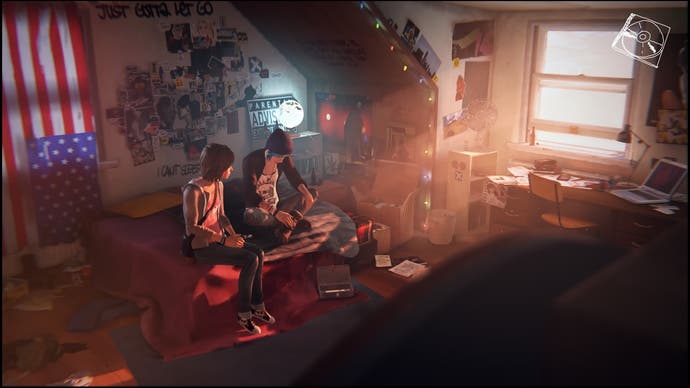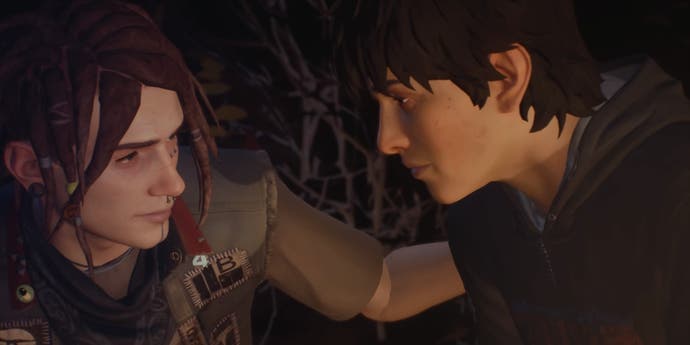Life is queer
Stranger things.
Hello! All this week we'll be celebrating Pride and the power of positive representations in games. Every day we'll be bringing you stories and insights from different parts of the LGBT+ community. You can also help support Pride with Eurogamer's newly redesigned t-shirt - all profits from which will be going to charity.
My first memories of playing Life is Strange resides within the hazy window of my early University years, sitting in the living room of my student house and skipping lectures with my housemate in order to play the next episode together.
I didn't know in 2015 how formative these moments would be.
For the first time in a game (aside from, like, Spyro the Dragon and The Sims) I felt I was a part of a community for a game that was made with me in mind. As a queer woman of colour, anything close to that feeling is decidedly fair and far between. It was sensitive, nuanced, introspective, and beautiful; with two ostensibly queer women at the helm.
Chloe was allowed to be messy, brash, loud and imperfect. Max was insecure, quiet, introverted and thoroughly creative - I saw both sides of myself reflected in these two girls, and it made me feel like I was okay, that I was allowed to be loud but unsure, messy but overthinking. The dichotomy of my existence was for once portrayed as valid.

I had always seen myself as the side character that gets one line of dialogue, only to perish five minutes later to drive the plot forward and fuel the vengeful anger of the cisgender, straight, white male protagonist. However, Life is Strange was different - it told me I could be the protagonist, that my existence did not end at my usefulness to someone more important than me.
And as a bonus, its community was smart, passionate, creative, and was full of people who looked like me and even had experiences similar to me. It was like nothing I'd ever seen before.
This feeling, this flood of understanding, is what led me to believe what I had rejected for most of my education; maybe the industry I love would want me in it.
And as it turns out, it did. I'm lucky enough to now be a Jr. Global PR Manager for Life is Strange.
Since I've been a part of the gaming industry, Life is Strange has come leaps and bounds, building the respect and trust of an audience which allows to explore more issues, more lived experiences, and reflect more of real life within the creative medium. If I can help to make just one person feel like they're seeing themselves for possibly the first time on screen, then I'll have achieved my goal.

So here I am, working on the actual game that made me feel like I was finally allowed to be a part of something that I had loved my whole life. I feel so overwhelmed with pride and honour every day to be able to be a cog in this beautiful machine. Life is Strange is safety, comfort, and the feeling of being seen for so, so many people.
The community is stronger, bigger, smarter, more creative and ardently passionate about the issues that matter to them than ever before - and I can't wait to see what they do next.

